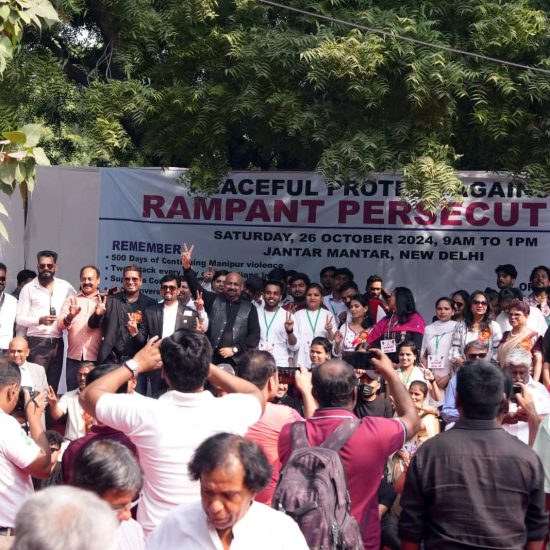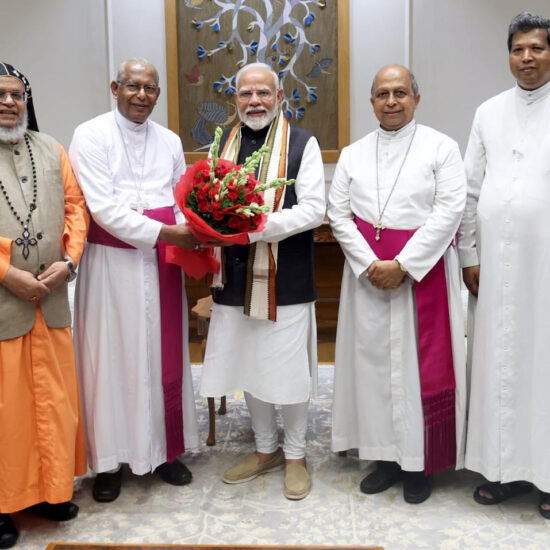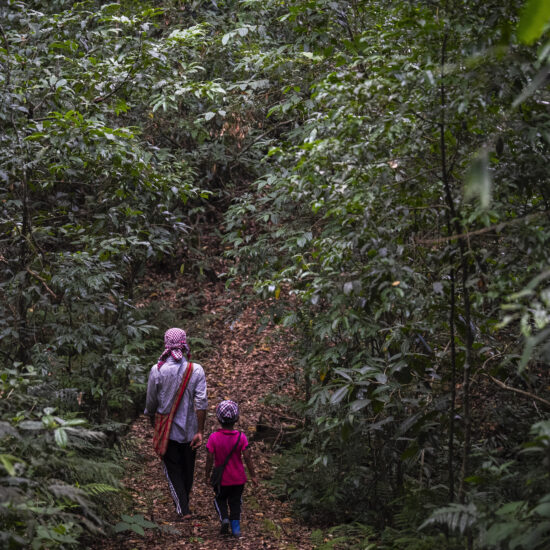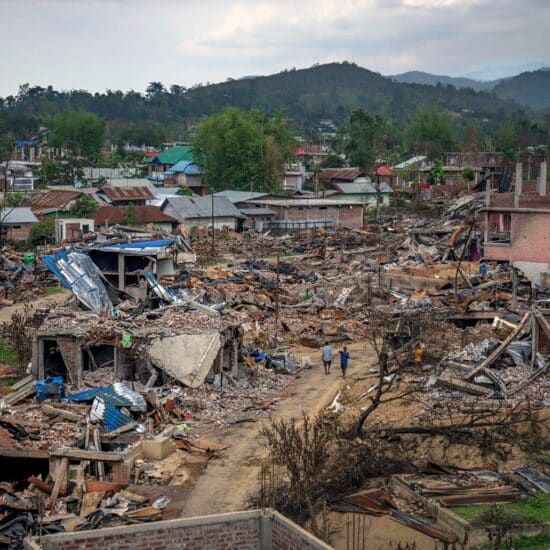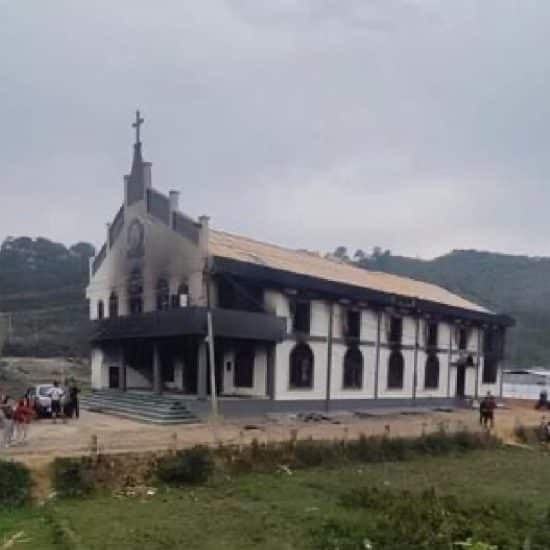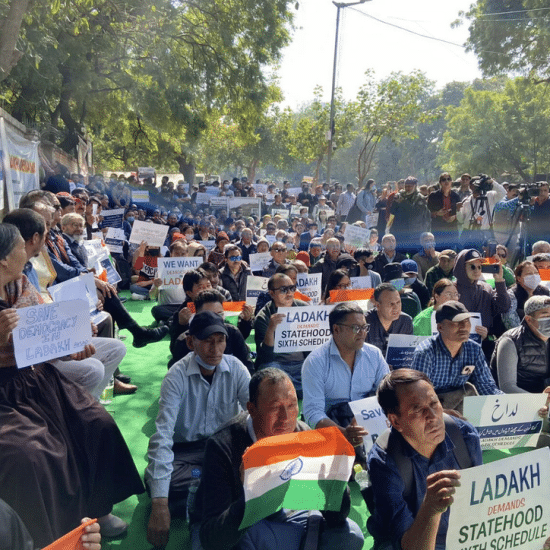In May, I trekked to North East India on a trip in partnership between Word&Way, Future Leadership Foundation and Transforming Leaders in Asia Ministries. My first trip to India, I enjoyed meeting Baptists there and learning about their culture and ministry context. I also learned a bit about driving in India.
 Brian KaylorAs best I could figure out, driving in India involves accelerating and braking quickly, taking a foot (or, as they would put it, 0.3046 meters) anytime someone gives you an inch (or, 2.54 centimeters) and weaving back-and-forth across lanes even if there are painted lines (which must just be art and not actual markers as there would often be three or four lines of cars on two lanes). Oh, and be sure to constantly honk your horn! Like all the time, communicating in some sort of secret Morse code of beeps. I felt like I could still hear the honking deep in my ears for several minutes after we arrived somewhere.
Brian KaylorAs best I could figure out, driving in India involves accelerating and braking quickly, taking a foot (or, as they would put it, 0.3046 meters) anytime someone gives you an inch (or, 2.54 centimeters) and weaving back-and-forth across lanes even if there are painted lines (which must just be art and not actual markers as there would often be three or four lines of cars on two lanes). Oh, and be sure to constantly honk your horn! Like all the time, communicating in some sort of secret Morse code of beeps. I felt like I could still hear the honking deep in my ears for several minutes after we arrived somewhere.
And, yet, I saw no accidents. If I had driven, I would have surely totaled the car. And my hosts thought I wanted to when I kept going to the driver’s side of the car since, like the British, the driver sits on the right side (aka, the wrong side) of the car. As crazy as their driving seemed to an outsider like me, it’s natural to those who grew up watching their parents drive that way.
I asked my host, A.K. Lama, about it. He leads Transforming Leaders in Asia Ministries and formerly served as general secretary of the Council of Baptist Churches in North East India. He also lived in the U.S. for several years as he attended Samford University and Trinity Evangelical Divinity School. He said he did learn to drive in the U.S. style, but then had to relearn driving when he moved back to India. Having grown accustomed to the U.S. approach of merging by letting someone go and then you go and so forth, he said he would pause to let someone go so he could go next. He laughed as he added he would then watch as a dozen cars crammed in front of him while the person behind him honked at him for not going.
When I travel to another country, I try to learn from and appreciate their cultures. It’s possible to travel somewhere and not experience it. As Conrad Hilton once remarked, “Each of our hotels is a little America.” I, on the other hand, left the tourist route in India to sleep and eat where the locals do. So, like I normally do, I tried the local food, which surprised some of the Baptist pastors who had seen other Americans shy away from their food. Fortunately, I like spicy food (though I’m still not ready to eat rice again).
When it comes to missions, we need to keep the same attitude. Too often, Americans jet in with “all the answers” and then depart without listening to the local experts. I’ve heard Baptists from several countries on their own bring up complaints about a U.S. Baptist mission agency that tries to control everything and does not work with — let alone listen to — the local Baptist communities. And, as a result, that group is not reaching its potential of sharing the good news in those nations.
What works in Richmond, Va., doesn’t necessarily work in Rajkot, India; Rio de Janeiro, Brazil; Riyadh, Saudi Arabia; Rykjavik, Iceland; or even in Richmond, Canada. A one-size-fits-all evangelism or church-planting strategy doesn’t actually fit. That’s something I appreciate about FLF as they focus on training national leaders to lead the ministry in their own countries.
We Americans can’t — and shouldn’t — do it all. The Spirit equips people in every tribe and tongue. We must recognize God is at work in all the peoples of the world and find ways to support where God is already moving.
If I tried to drive in India, I would probably wreck or find myself trapped in the middle of an intersection as cars moved around me from about eight directions. And if I tried to drive in the U.S. like they do in India, I’d probably lose my license in a week. But that’s okay. We don’t have to be the same.
And in the Kingdom of God, we can appreciate those differences — if we’re willing to listen more and take control less. As I continue to ponder what I learned from Baptists in North East India, I will do so while eating some meals without rice and while enjoying a quiet drive.
Brian Kaylor is editor & president of Word&Way.

